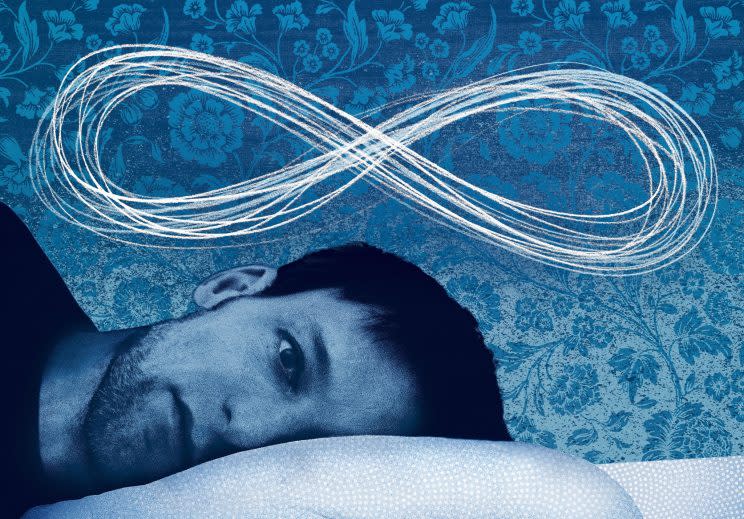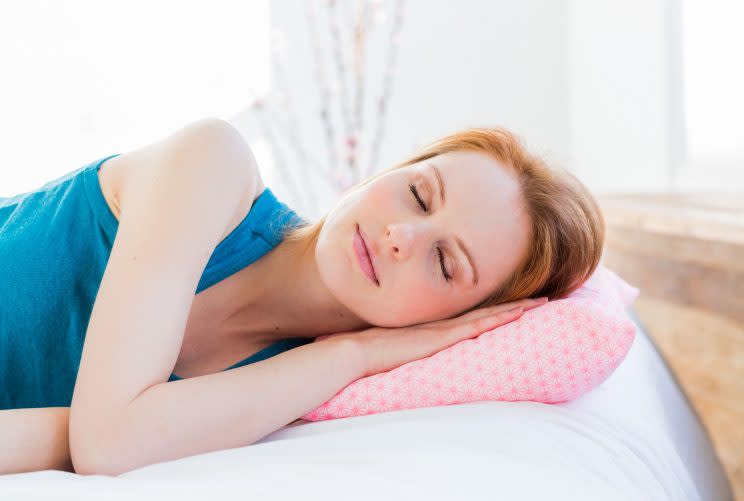Ten 'harmless' little habits which could stop you getting a good night’s sleep

Most of us know that swilling down lots of booze, or sitting awake for hours on a smartphone won’t do us any favours when it comes to sleep.
But could what you do during the day stop you getting a good night’s sleep?
Actually, yes – and it’s also worth noting that a ‘good’ night’s sleep isn’t just about how many hours you get.
MORE: Very superstitious! HALF of Britons have a lucky number (so what’s yours?)
MORE: Drunk milkman crashes truck into house and car causing £40,000 worth of damage
This year America’s National Sleep Foundation (NSF) published guidelines on telltale indicators of good sleep – including falling asleep in 30 minutes or less, waking up no more than once, and sleeping 85% of the time you’re in bed.
Here’s some of your habits which could be interfering with that goal.
Working from home

A report by a UN agency found that people who work from home are more likely to suffer from stress and insomnia than people who work from an office.
A new report from the United Nations’ International Labour Organization (ILO) analysed data from 15 countries – and found that people working from home faced risks of ‘longer working hours, higher work intensity and work-home interference’.
All workers who worked from home reported higher stress and increased insomnia.
Doing housework
A recent study which highlighted the positive effects of exercise on sleep also showed that people who rely on housework and childcare as their main exercise tend to lose sleep.
Dr Michael Grandner of the University of Pennsylvania analysed the sleep habits and exercise routines of 430,000 people.
He said, ‘People who receive most of their activity from housework and childcare were more likely to experience insufficient sleep – we know that home and work demands are some of the main reasons people lose sleep.’
Checking Facebook a lot during the day
Checking Facebook, Instagram and Snapchat all day really wrecks your sleep, a study has found.
Researchers from the University of Pittsburgh examined 1,788 adults aged 19 to 32, asking questions about sleep and social media use.
They found that people who used social media heavily were three time more likely to have disturbed sleep, the researchers found.
People who checked sites obsessively all day could be most at risk, the researchers warned.
‘This may indicate that frequency of social media visits is a better predictor of sleep difficulty than overall time spent on social media,’ said Dr. Jessica Levenson.

Doing cardio exercise in the evening
Fitness instructor Katy Widrick says that cardio exercise is better in the morning – as it can overstimulate your brain.
Most experts advise against vigorous activity – and the NHS advises winding down with a warm bath, and writing a to-do list for the next day.
Spending too long in bed
It doesn’t sound like it makes too much sense – but the ‘cure’ for insomnia could be staying awake.
A review of 20 sleep studies found that ‘sleep reduction therapy’ is as effective as drugs in helping issues with sleep.
It’s not quite as simple as just staying up, though – sleep restriction therapy is a form of cognitive behavioural therapy for insomnia, designed to push sleepers into changing thoughts and habits.
During the therapy, patients monitor how much sleep they actually get – then restrict their hours in bed to mirror that time.
The point is that patients no longer spend hours in bed waiting to sleep.
Reading E-books
Taking a smartphone to bed is obviously a bad idea – but even an E-reader can damage your sleep.
If you do read ebooks, choose a device with a non-backlit sccreen.
The blue light emitted by the screens in many devices disrupts your body clock,, Harvard researchers found in a 2014 study.
Researcher Anne-Marie Chang said, ‘We found the body’s natural circadian rhythms were interrupted by the short-wavelength enriched light, otherwise known as blue light, from these electronic devices.’
Taking vitamins
Some studies have shown that people who take multivitamin pills tend to have problems sleeping – although the connection is not proven, and it’s not clear which vitamins are the problem.
A 2007 study using sleep diaries found that people who take vitamins tend to have poorer, more interrupted sleep.
The New York Times says that some people believe B vitamins may be the cause of disrupted sleep.
Taking painkillers
Surprisingly, quite a lot of over-the-counter pain pills actually include caffeine – especially ones for colds and flu.
Check the ingredients carefully if you’re finding it hard to drop off.
Checking email in the evenings
Many of us take home a work device, and without thinking about it, leave the email on in the evenings.
But that’s a source of stress – and getting emails from management can lead some people to lose sleep, the Future Work Centre said in a 2015 report.
The researchers say, You may want to consider launching your email application when you want to use email and closing it down for periods when you don’t wish to be interrupted by incoming emails.
‘In other words, use email when you intend to, not just because it’s always running in the background.’
Changing your bedtime
Human beings are creatures of habit – and we sleep better if we do the same thing every night.
An NHS guide to sleeping offers the following advice, ‘A bedtime ritual teaches the brain to become familiar with sleep times and wake times.’
‘It programmes the brain and internal body clock to get used to a set routine.’

 Yahoo News
Yahoo News 


